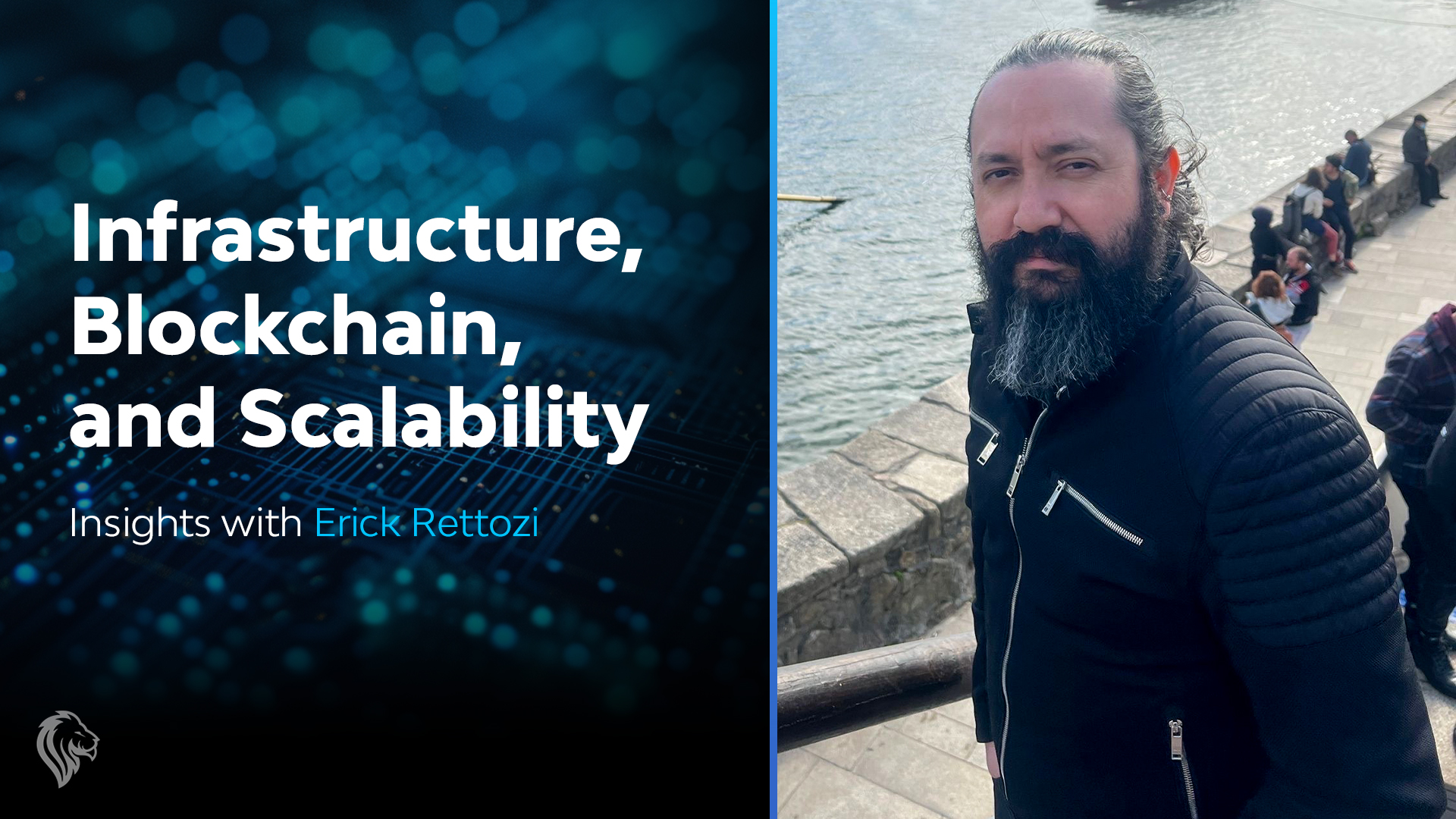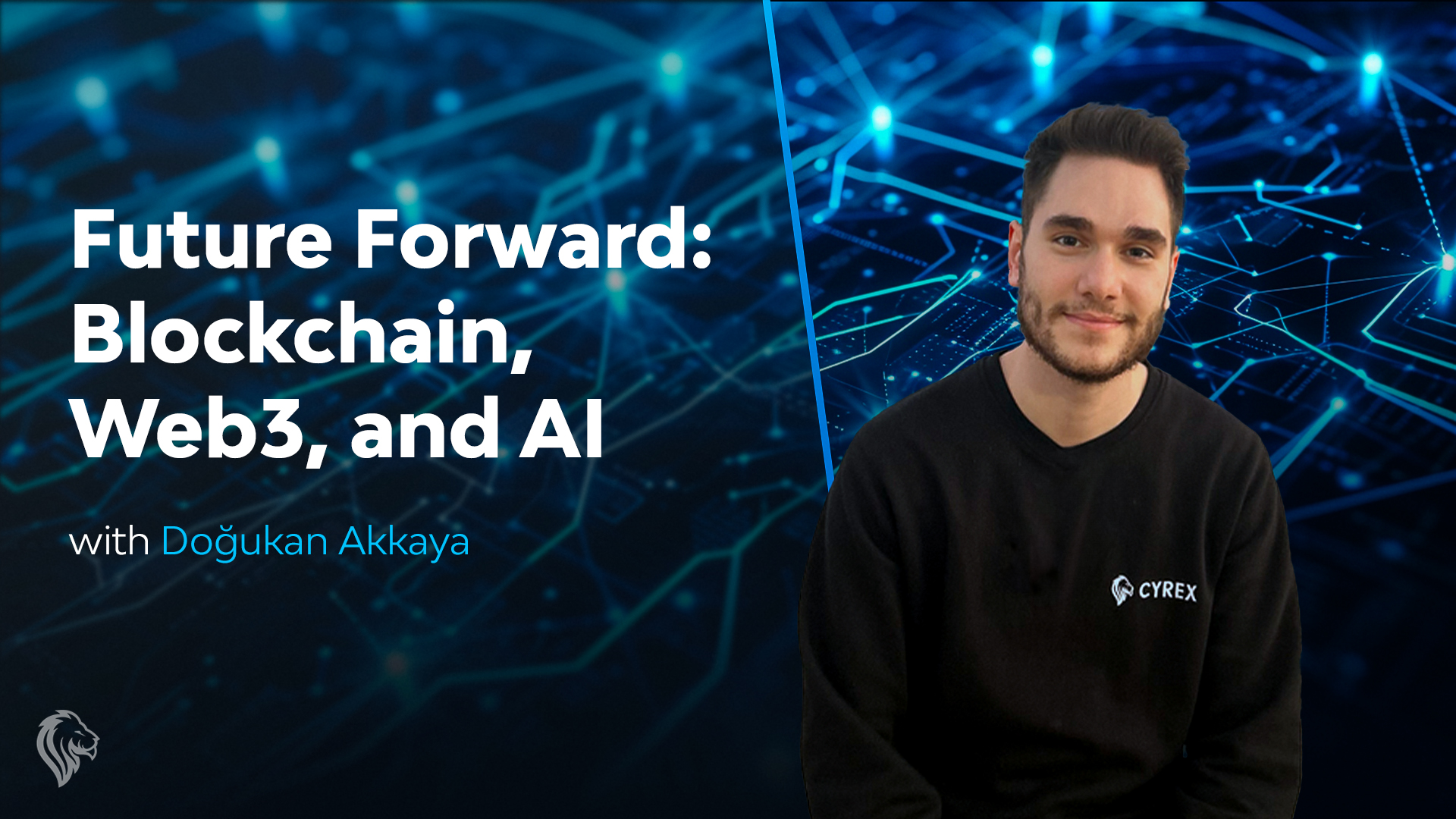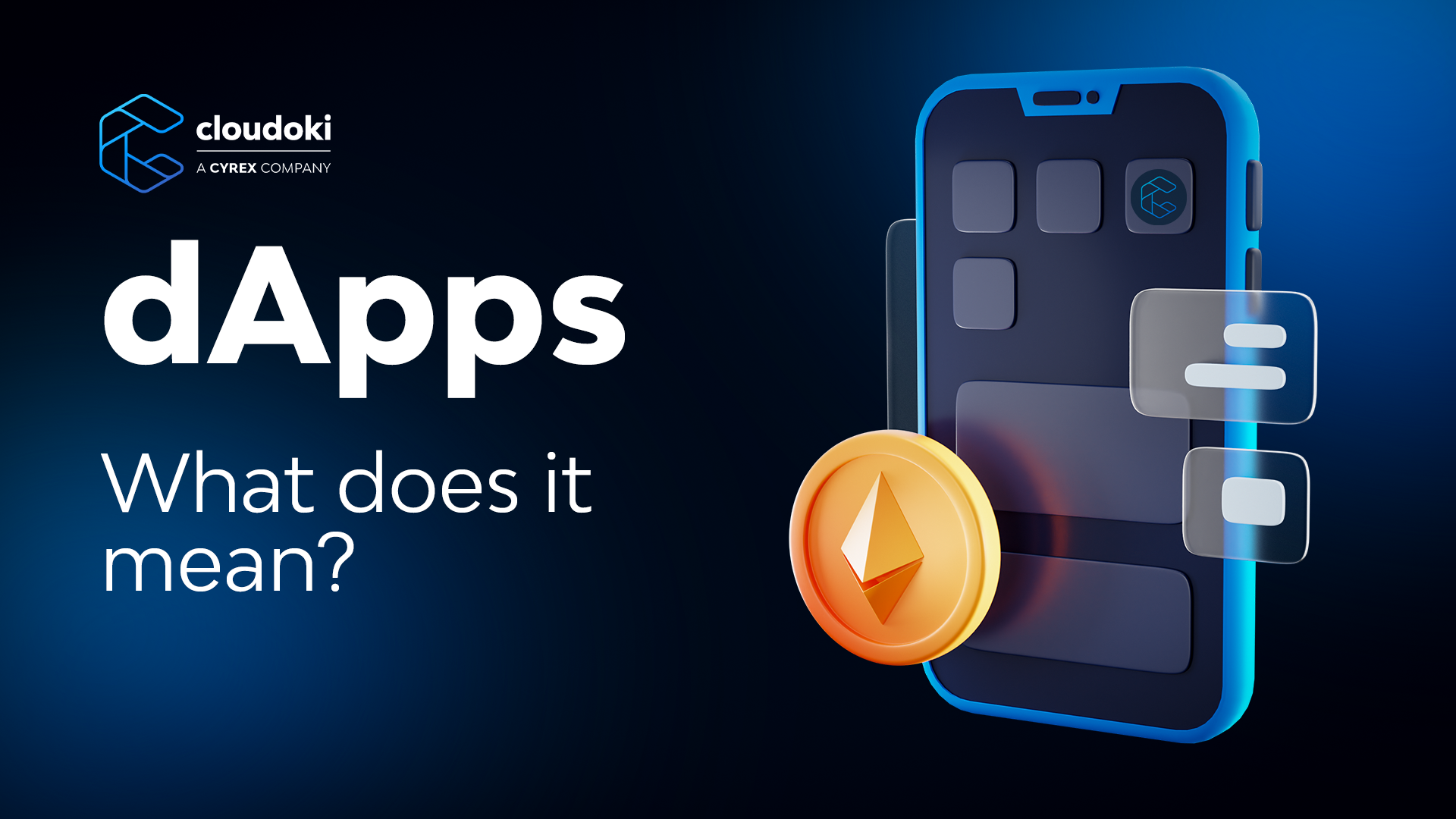Decentralized apps, commonly referred to as ‘dApps’ is a buzzword that has been popping up more and more in recent years.
Although these are getting increasingly adopted as time goes by, their usage has been mostly seen in specific markets such as fintech and gaming.
It’s fair to say that this paradigm shift is still in its infancy and that we can expect a lot of changes as new players and markets adhere to this new concept, however, the possibilities it entails are game-changing. They don’t call this web 3.0 for no reason.
The gist
Decentralized applications are exactly what they say they are, applications (ergo pieces of code) running in a decentralized ecosystem without any control from external parties, being these banks, governments, or any other entity that would feel tempted to enforce any specific outcome.
To talk about (some of) the benefits of dApps, one needs to pay attention to the dangers and flaws we have grown accustomed to accepting as natural risks of not only the internet but society in general.
Transparency
Every time we enter data and click a button on any website or app, we’re essentially blindly trusting that whatever we were promised that button will do, is actually the case. This is easily extrapolated across anything we do and consume. We buy ethically sustainable food trusting that it is actually grown as such; Donate money to charities trusting it will be applied as advertised; Take medicine trusting it solves the issues we have.
Without realizing it, we are completely dependent on institutions and systems’ keeping their promises.
The go-to method to help mitigate this has been adding regulations on top of regulations to guarantee we get a somewhat resemblance of what we were promised. These can be in the form of independent institutions that curate an industry or simply highly bureaucratic processes that exist to validate every single aspect of a service. This approach, of course, has many obvious problems.
The first limitation of having regulators is that they can’t be everywhere, controlling everything, all the time. Having said this, it’s reasonable to expect that we are getting what we were told, most of the time, at best.
Deeply tied, but not exclusively, to regulations, is the cost to maintain a system that is obligated to suspect itself. Regulatory institutions or simple people validating processes have an essential role in today’s society, but make no mistake, there is a cost to making this business. Being through taxes or embedded into any of these service’s cost, we all pay for this, massively.
Lastly, the classic “who watches the watchmen” quote from ??? comes to mind as we also must question the suitability of these institutions. After all, at the end of the day, these are built with people, and anyone can (and will) fail.
Speed
Who hasn’t ever complained about the inefficiency of banks or governments? It shouldn’t come as a surprise that these are the most bureaucratic and regulated institutions in the world. Having such a heavy ecosystem takes a toll on costs, as mentioned, but also on execution speed and quality of service.
Systems that are highly regulated need to have a lot more checks in their pipeline to guarantee a minimum level of compliance (again, most of the time). This can be done programmatically or by analog agents, we commonly refer to as “people”.
Whilst doing things programmatically is usually a lot faster and safer, this is rarely completely autonomous in most scenarios. We are still very reluctant to fully trust in these IT systems, understandably.
Long story short, the more complex and important a system is, the more people it needs to regulate it and keep it sane. People need offices, equipment, and regulators to regulate the other regulators, but more relevant than that, people need to communicate with one another, many times on different departments, buildings, and cities, and well, we are just not very good at doing that.
Ultimately, having an abundance of people controlling systems turns what could be very simple into something very complicated, and slow. Although simpler systems are a lot faster, we keep maintaining bigger and bigger systems to keep them reliable.
Security & volatility
Cloudoki, being part of the Cyrex group, is very sensible and experienced with security-related topics, especially around Web3.
As mentioned above, although many times we have the technology to remove the human component from the equation and ultimately speed things up, we chose not to. All the reasons behind this run much bigger than this text, but a big chunk has to do with our trust in these actual systems.
It’s not that the programmers behind these architectures do bad jobs, but rather our confidence in the fact that nobody has tampered with any part of the system. The bigger the prize, the more appetite for tampering. We can easily see that by looking at the millions in damages it does to banking institutions, every year.
This will turn a potentially simple “program” into something that needs to not only have its own cyber security team but also multiple human checkpoints within any given process to validate the outcome.
On top of that, unlike a biblical fight with good vs evil, there is not even a guarantee that in the end everything will work out fine.
How dApps are solving this
Like any evangelist, after painting the world dark I offer salvation.
Blockchain, although already being used for so much more, was originally designed as a support for cryptocurrency as a means to escape centralized banking systems. It boasts a couple of very simple but powerful features that will completely change how businesses can be run altogether. Decentralization, immutability, and transparency.
One could sum the source of all evil in bulky and slow-performing organizations to “trust issues”. If we were to trust 100% in the processes that are related to an organization we wouldn’t need regulators or validators. This would mean we could automate a lot more than we are automating today, into faster and cheaper services.
Sparing all the details, dApps are pieces of code placed inside a blockchain that is really immutable (due to being decentralized) and are visible to anyone that wants to verify what they do. Meaning, there is a way of creating programs that will, by design, never change, “live forever”, and are verifyable by anyone.
DeFi
We now have all the tools we need to slowly but surely phase out slow, human-dependent systems in favor of highly scalable, reliable, and efficient pieces of code.
Looking at these topics alone (and there are oh so many more) it becomes just a bit clearer why industries such as Fintech are looking very closely to decentralization as means to solve long-lasting problems of the current ecosystem.
Not only that, but new ventures adopting these new ways of making business will have a clear advantage in comparison to classic players and hopefully, change the market from within.
DeFi (decentralized finance) picks up exactly on this by, for example:
- Using Blockchain to become tamper-proof
- Making transactions transparent, verifiable, and traceable
- Transforming transitions into automated and real-time.
Conclusion
As always, the road to changing the status quo of whole industries is bumpy and slow, especially well-established cornerstones of the modern world. But it will happen nonetheless.
Just like the cloud adoption, we can expect a slow but steady increase in the adoption of dApps among organizations. As limitations will occur, new and better solutions will compete amongst themselves to keep pushing the technology forward. This is the law of tech.
Complete new segments of services and companies will rise up to answer a whole new list of needs & demands this new way of consuming will bring, and we’ll be right here to help them along the way.
Related Articles

Infrastructure, Blockchain, and Scalability with Erick Rettozi
In this article, Cyrex' Lead Backend Engineer Erick Retozzi offers expert advice on buildi...
Read more
Future Forward: Blockchain, Web3, and AI Technology with Doğukan Akkaya
Join Doğukan Akkaya as he navigates the cutting edge of technology in 'Future Forward.' F...
Read more
The trough of disillusionment – Blockchain and AI
Explore Gartner's Hype Cycle and its parallels with AI and Blockchain. From initial excite...
Read more
Deciphering the Web3 Wallet: Your Ultimate Guide to Cryptocurrency Wallets
Explore the world of Web3 wallets and their crucial role in cryptocurrency management. Dis...
Read more


